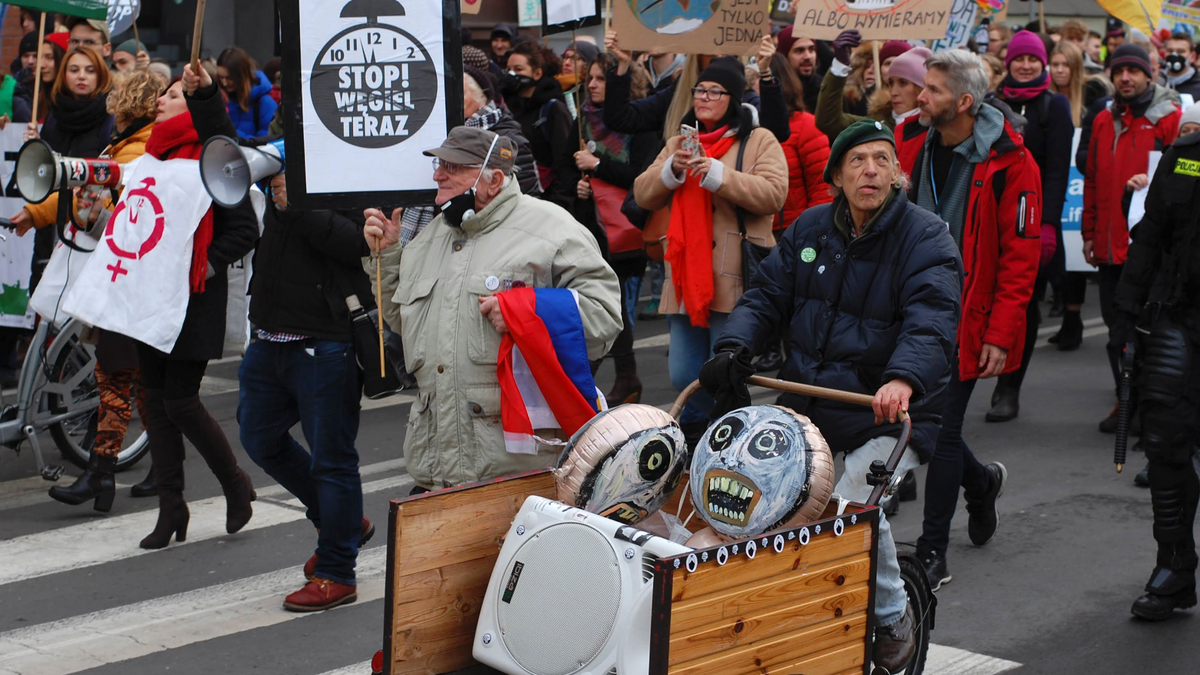
Protestors participates in a march calling for an end to fossil fuel use during the two-week COP24 global climate talks in Katowice, Poland, on Saturday, Dec.8, 2018. (AP Photos/Frank Jordans)
KATOWICE, Poland – The Latest on U.N. climate talks taking place in Poland (all times local):
11:45 a.m.
Several foreign environmental activists who have been detained or deported by Poland's Border Guard since the start of the U.N. climate conference in the Polish city of Katowice are criticizing the actions as violations of their democratic rights and an obstruction of their climate-protection work.
Border Guards say a temporary measure put in place for the climate conference bars entry to people who potentially pose a security problem.
But Iryna Stavchuk, the executive director of a Ukrainian group, the Centre for Environmental Initiatives "EcoAction," said in a statement Tuesday that she has been participating in climate talks as a civil society observer since 2006 "without a single violation." She said she was denied entry to Poland along with eight other Ukrainian environmentalists for the period of the two-week conference.
Maria Kolesnikova, an activist from Kyrgyzstan, said she will be "deprived of the opportunity to voice my concerns" as investments into the development of alternative energy sources in Kyrgystan are decided.
An activist from Georgia with the group 350.org, Nugzar Kokhreidze, said he has been isolated at Katowice International Airport for four days. He said he has been working on climate issues by internet but will fly home on Tuesday.
___
10:55 a.m.
Scientists are increasingly finding the fingerprints of climate change in droughts, storms and heatwaves.
A review of 102 scientific papers over the past three years, published Tuesday, found 73 concluded that climate change made extreme weather events more intense or likely.
London-based think tank Energy and Climate Intelligence Unit presented its review on the sidelines of the U.N. climate talks in Katowice, Poland.
The group's director, Richard Black, said the strongest link between climate change and weather was found in heatwaves, such as the one in Europe this summer.
Adele Thomas of Berlin-based research group Climate Analytics said scientists' growing ability to attribute extreme weather to climate change could have important consequences for international discussions about financial compensation for countries suffering loss and damage from manmade global warming.
___
10:05 a.m.
National leaders and ministers are preparing for the final stretch of U.N. climate talks, with just days left to break through thorny issues that diplomats have struggled to resolve.
U.N. climate chief Patricia Espinosa urged delegates Tuesday to show a "spirit of unity" through the end of the week.
Almost 200 countries are gathered at the Dec. 2-14 meeting in Katowice, Poland, to finalize the rules of the 2015 Paris accord on curbing global warming.
The Intergovernmental Panel on Climate Change says governments need to act soon to keep temperature increases to 1.5 degrees Celsius (2.7 Fahrenheit).
The talks are also meant to push countries to commit to more ambitious targets for greenhouse gas emission reductions.
Poor countries, meanwhile, want assurances on financial support to tackle climate change.








































